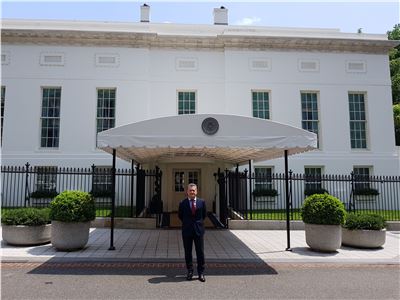In the past few weeks, pivotal policy reforms to regulate and promote the expansion of U.S. tropical agricultural operations have garnered significant attention. These changes, driven by volatile commodity prices and strategic governance, are set to bolster farming practices and ensure economic resilience.
The U.S. government has enacted a series of policy modifications to encourage expanding agricultural operations in regions producing tropical commodities such as coffee, cocoa, and sugar cane. These reforms are tailored to foster environmental stewardship while boosting the agricultural sector's economic health.
Commodity prices critically influence agricultural economics and dictate the scope of cultivation. Influenced by global events and market dynamics, recent fluctuations suggest a potential increase in cultivating commodities like cocoa. While necessary for meeting global demand, such expansion should be approached to balance production needs with environmental considerations.
Governance is paramount in this context. The U.S. Department of Agriculture (USDA) has established guidelines to facilitate responsible expansion. These include rigorous environmental assessments and meticulous monitoring of land-use changes, ensuring compliance with legal standards, and promoting environmental health. These policy initiatives are expected to stabilize commodity markets and bolster long-term agricultural productivity in the U.S. This is essential for sustaining supply chains and controlling consumer market price volatility, thereby protecting American consumers and farmers.
While the expansion into tropical regions does raise environmental considerations, the new policies are designed to encourage responsible growth. Emphasizing sustainable techniques, such as agroforestry and organic farming, can alleviate potential negative impacts such as soil degradation and water scarcity. The reforms also consider the social consequences, particularly on local farming communities. It is vital that these communities are actively involved in the expansion process and that they benefit economically. Ensuring fair labor practices and equitable distribution of economic gains is critical to these policy changes.
The recent strategic adjustments in policies governing the expansion of U.S. tropical agricultural frontiers mark a significant shift towards enhancing farm productivity and environmental responsibility. The success of these initiatives will largely depend on their effective implementation and ongoing evaluation. As these policies influence the sector, their impact on the national economy and the agricultural landscape will be closely watched.
How do you see the recent commodity price changes affecting agricultural decisions in your community?
What are your thoughts on the balance between agricultural growth and environmental conservation?
How can policymakers better support farmers while also addressing environmental and social needs?
SEND YOUR ANSWER TO EDITORINCHIEF@CYBEREPORT.COM
- Tags:
- Categories:










































